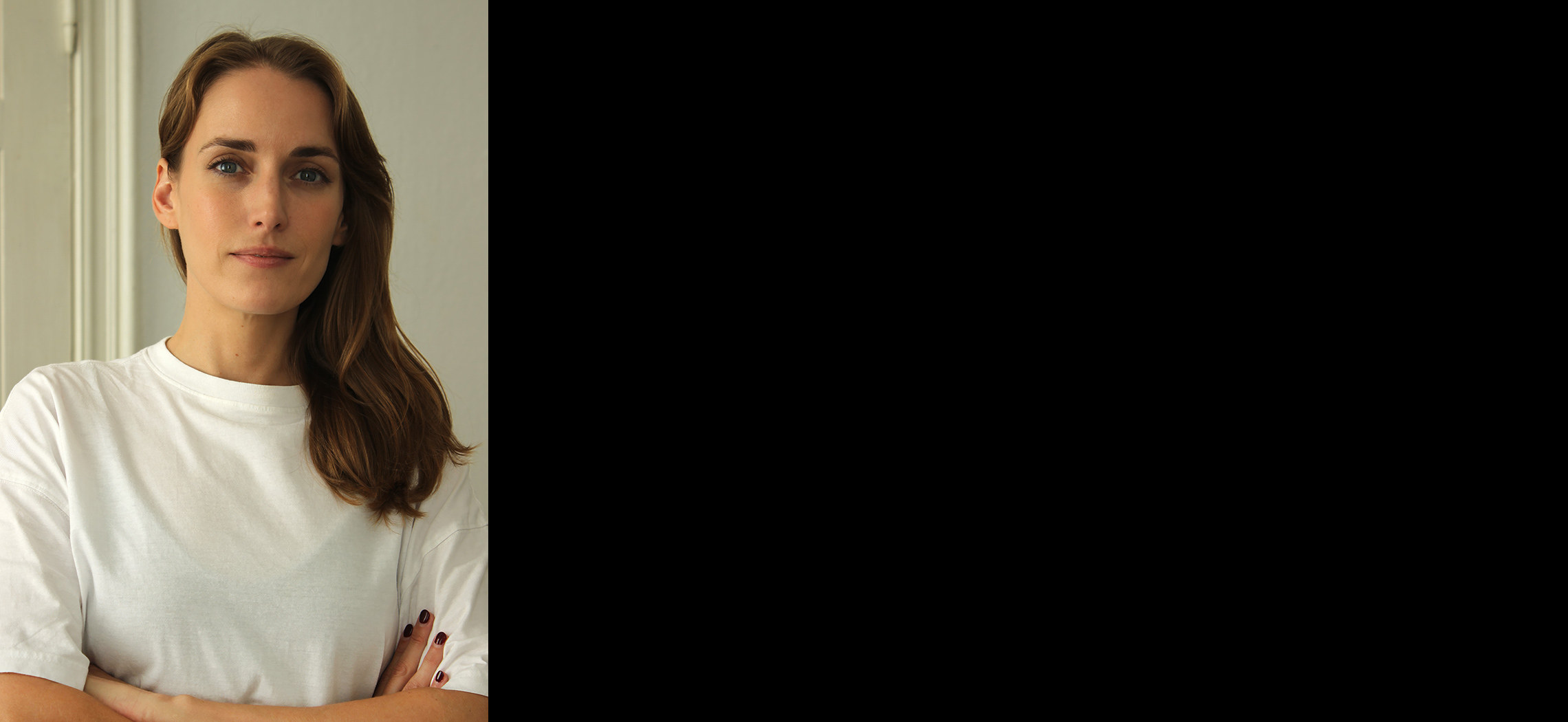A portrait of producer Viktoria Stolpe
Viktoria Stolpe © Bernd Nautilus“It was an incredible experience!” Even a few weeks after the world premiere of THE UNIVERSAL THEORY in the competition of this year’s Venice festival, Viktoria Stolpe’s delight and perhaps a little pride are still obvious. The fact that the film directed by Timm Kroeger – an astonishing mix of film noir, alpine movie and historical drama set against a black-and-white panorama of the Alps – came away empty-handed at the awards ceremony does not dampen the producer’s enthusiasm during our interview in her hometown, Berlin: “The invitation to the competition alone was a great confirmation of our work and this particular film, which we really spent a long time makin. The fact that she and Kröger were able to return to the Lido, where their university graduation film ZERRUMPELT HERZ premiered at the Settimana Internazionale della Critica in 2014, was simply the icing on the cake.
Stolpe and Kroeger, who met while studying at Baden-Wuerttemberg Film Academy, founded their joint company The Barricades in 2018, aiming not least to get THE UNIVERSAL THEORY off the ground. After their first university film, which was also shown at festivals in Iceland, Hong Kong and Argentina but never made it into German cinemas, the two faced a challenge: their first independent movie rapidly developed into a much bigger project.
“At first, there was rather a long development period until we had a basic, suitably convincing package,” Stolpe remembers about the creation of her most elaborate production to date, for which a German distributor was found early on this time. Numerous sales abroad have already been arranged, as well. “Development is the most important aspect of filmmaking. Before the first day of shooting, the film already exists in our heads – which doesn’t mean everything is fixed while shooting. But writing, casting, team – it all takes time and the biggest budget in the world won’t get you anywhere if the content isn’t right, the essentials. And especially when you’re making films that are unusual for Germany, you need a strong foundation to be able to move forward. Above all, that includes the right production and creative partners.”
In the end, the road to success emerged as a three-country cooperation, with the Berlin company teaming up with Ma.ja.de in Germany, Panama Film in Austria (where most of the filming was done) and Catpics in Switzerland. There was no question of too many cooks spoiling the broth. “Everyone had absolute faith in us, and we were able to realise our vision just as we had planned. I am thrilled to have met so many excellent new partners in production and sales during the process.”
It is not difficult for Stolpe to verbalise her goals as a producer: “We want to make vibrant films, whereby the primacy of cinematic storytelling lies in the medium of cinema itself. We are interested in films by individuals who wish to recount something in a very personal way and who operate in the field of tension between art and entertainment. And we want to work internationally, making films that no one expects to come out of Germany.”
In addition to Kroeger, said individuals include Sandra Wollner, whose THE TROUBLE WITH BEING BORN won at the Berlinale as well as the Austrian Film Award; Vienna’s Panama Film was co-responsible for its production along with The Barricades. Wollner’s next film, to be shot in 2024, is almost fully funded now and will also be realised in the same constellation, as a 50/50 German-Austrian co-production. The Barricades is currently shooting SOI DOGS by Roderick Warich in Thailand; previously, he was involved as a writer in THE UNIVERSAL THEORY, ZERRUMPELT HERZ and THE TROUBLE WITH BEING BORN.
A sworn circle of friends who have known each other for a long time and work together on every project – for Stolpe, this is the true strength behind her company. Two or three films in various stages of development are currently more than enough for The Barricades. But it doesn’t have to stop there, as she emphasises in parting: “Our films don’t have to be limited to this group, I’m definitely open to other filmmakers. Wherever there are exciting voices, no matter where, we are interested. In the end, we are only interested in making films that we would like to see ourselves. I want to work with people who are hungry, who are looking to reach beyond their limits. We never want to get into the trap of having to produce any old movie just because we need to cover our costs.”
Patrick Heidmann

